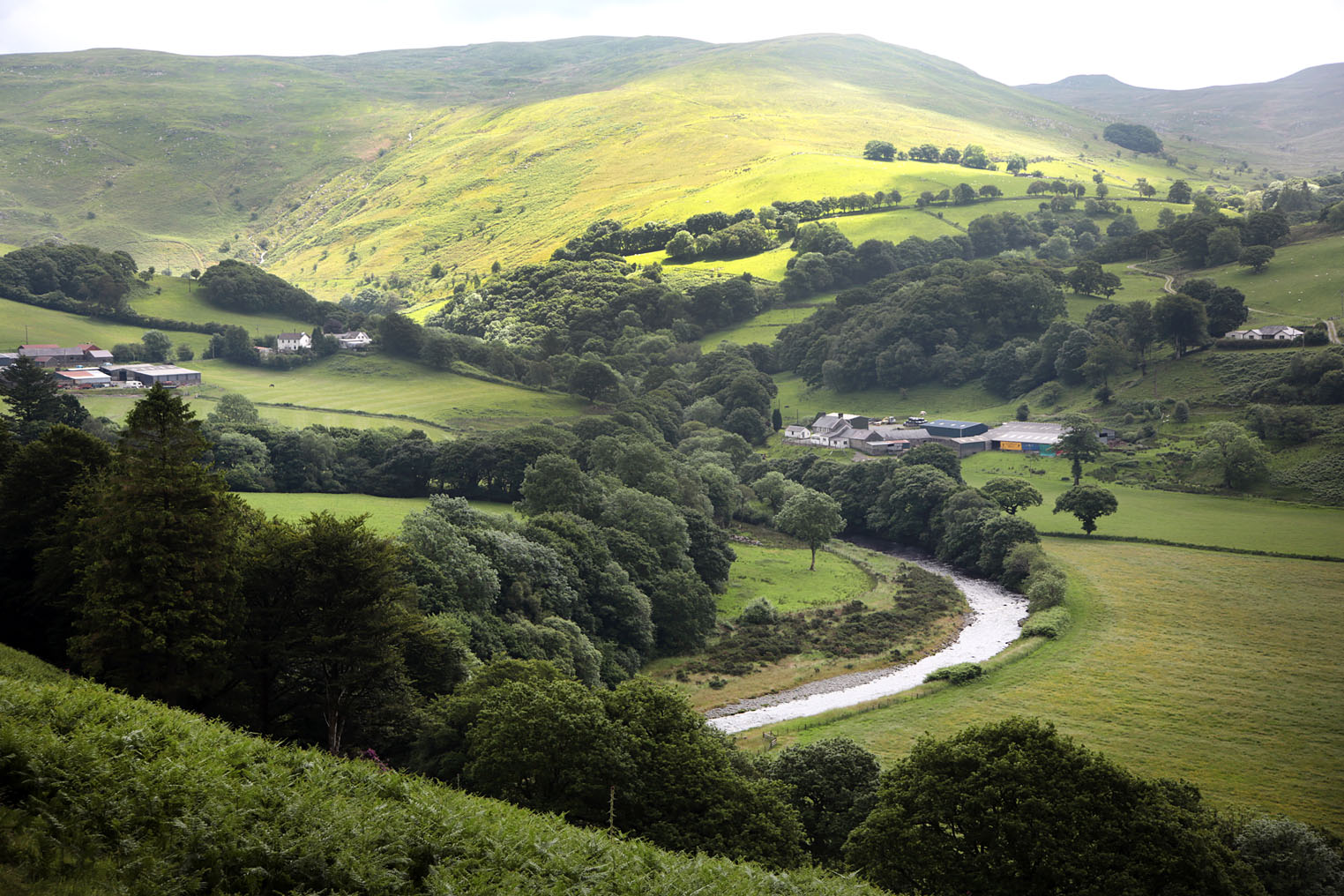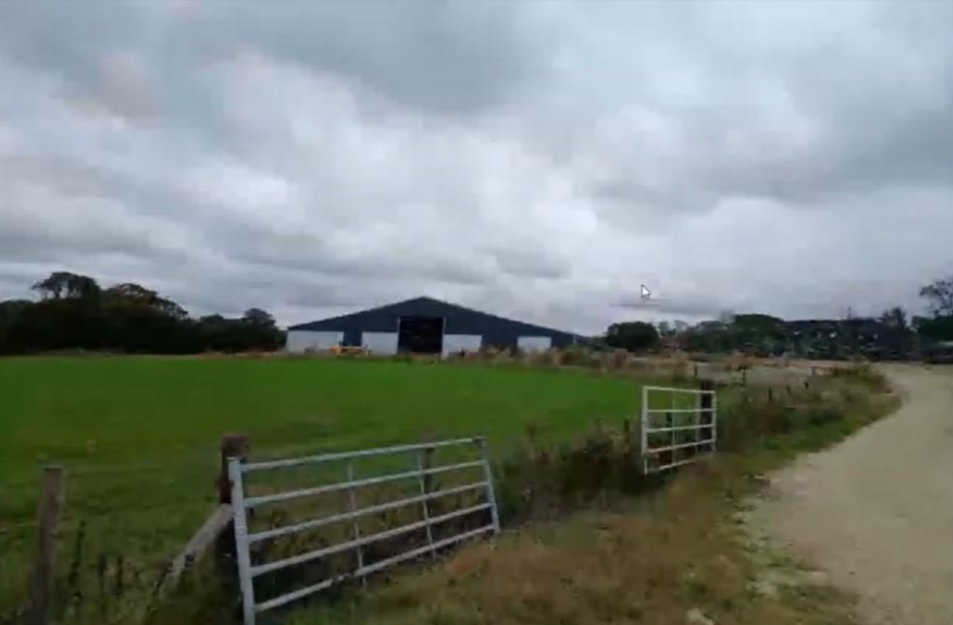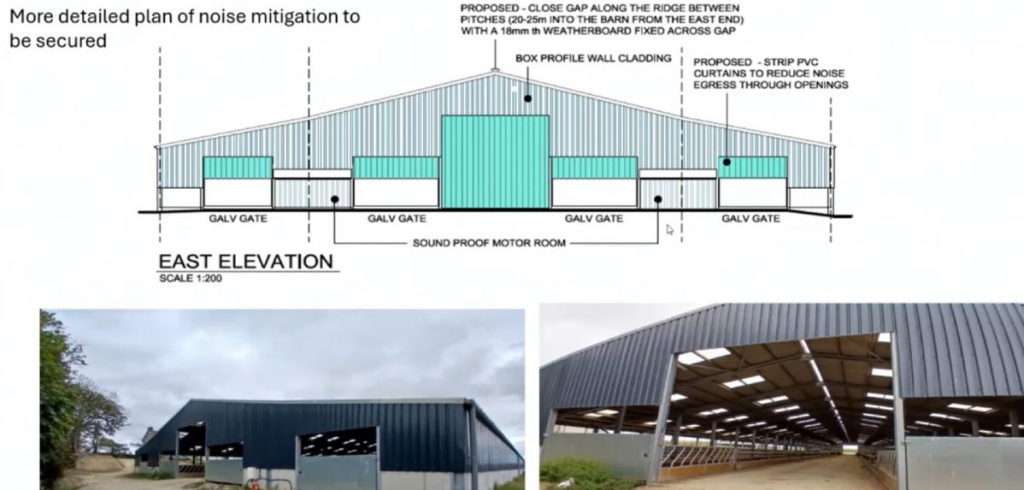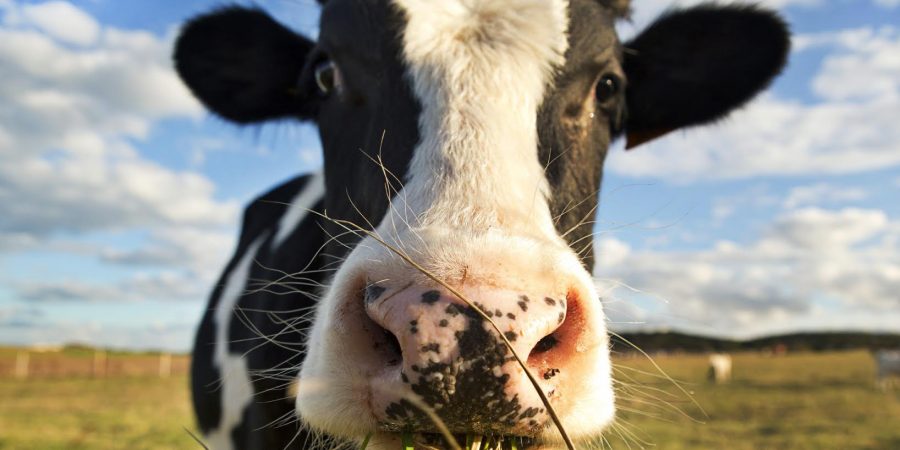Farming
Glyphosate crisis continues


Farmers wait: On pesticide decision
THOUGH THE EU Commission has announced that it will be attempting to secure an 18 month relicensing approval for glyphosate – the world’s most widely used herbicide which is currently mired in controversy over its possible health impacts – member state ministers who rejected previous licensing proposals from the Commission have stuck to their guns ahead of a planned vote.
Responding to the Commission’s proposed temporary relicensing – pending the findings of a report the EU executive has commissioned from the European Chemicals Agency (ECHA) – French environment minister Segolene Royal said France will not change its mind on glyphosate and will not vote in support of the Commission’s proposal.
Germany’s environment ministry has also confirmed on Twitter that it won’t alter its stance next week. Due to the different positions on glyphosate held by Germany’s environment and agriculture departments (controlled by two different political parties making up the country’s coalition government), officials have said Germany will abstain in any glyphosate vote.
COMMISSION’S PROPOSALS ‘UNACCEPTABLE’
Ministers from Sweden, Italy Portugal and Austria have all expressed opposition to the Commission’s past proposals, backing the published opinion of the World Health Organisation’s cancer research arm IARC on glyphosate; last year, IARC classified glyphosate as a probable human carcinogen, though a subsequent review by EU health watchdog EFSA reached the opposite conclusion, sparking a spat between high ranking scientists from the two agencies.
On Wednesday, Green MEPs in the European Parliament reacted to EFSA’s proposal to make scientific papers which influenced its decision on glyphosate – but were not available to IARC, which operates to strict transparency guidelines – available in a private reading room, which was set up to use for viewing sensitive documents relating to TTIP (the trade deal being brokered between the EU and United States) and tax.
EFSA’s suggestion was made in response to a freedom of information request submitted by four MEPs. The Greens’ spokesperson on the issue, MEP Heidi Hautala, commented: “this culture of radically limited transparency, whereby MEPs can only access a secret room without their phones, laptops and sometimes even pens or paper, should only be applied in extreme cases, and should not be used in response to public access to documents requests”.
The current approval period for glyphosate is set to expire at the end of June. In April, the European Parliament voted to approve a shorter relicensing of glyphosate, but with heavy restrictions on its use – including bans on use in public parks, restricting sales to professionals only and preventing pre-harvest use of glyphosate as a desiccant.
In its latest, temporary proposal the Commission recommends minimising these practices, but does not commit to an outright ban.
NO BACKING DOWN
Commenting on the temporary renewal plan on Wednesday, EU Greens’ environment and food safety spokesperson Bart Staes stated: “This proposal for a ‘technical extension’ has to be seen as the Commission backing down, after its failure to bulldoze through the re-approval of glyphosate following heavy industry lobbying.
“While it means an eleventh hour reprieve for glyphosate, this is hopefully only temporary and this should be the beginning of the end for this toxic product.”
The NFU has revealed that its vice president Guy Smith has met with EU Health Commissioner Vytenis Andriukaitis, who tabled the Commission proposal on Wednesday.
Speaking after a second vote on glyphosate was delayed last month, Mr Smith said: “I am nothing short of exasperated as to why this key herbicide cannot simply and quickly be given the reauthorisation that has been recommended by EFSA – the appropriate EU scientific body.
“Some member states in the committee are prevaricating and wasting time when they could be taking decisions based on scientific evidence. Glyphosate is a pesticide which allows farmers to combat weeds while supporting cultivation methods that can preserve good soil structure. There is no sense behind this delay.”
SHOULD HAVE BEEN BANNED ALREADY
Green MEP Bart Staes added, “The EU will now have to finalise its assessment of the health risks with glyphosate, both as regards it being a carcinogen and an endocrine disruptor. However, glyphosate’s devastating impact on biodiversity should have already led to its ban.
“The significant public mobilisation and political opposition to reapproving glyphosate has been taken seriously by key EU governments and the Commission has been sent back with its tail between its legs.”
He continued: “The whole controversy surrounding the re-approval of glyphosate has revitalised the debate about Europe’s agricultural model and the dependence on toxic substances in the current system.
“This is already starting to filter through the policy-making process, with the Dutch EU presidency having flagged up the debate this week. This opportunity now needs to be seized [in] fundamentally reorienting the EU’s Common Agricultural Policy towards a more sustainable agricultural model.”
FARMERS ASKED TO DO THE IMPOSSIBLE
In an open letter to EU policymakers and officials on June 3, the NFU wrote: ‘The removal of such a tool carries the very real risk of yet another pressure on our incomes at a time when economic returns are already severely squeezed.
The arable sector will likely be hardest hit through any restrictions, with direct impacts on yields.
‘Loss of availability in the livestock and dairy sectors would result in an inability to tackle invasive and poisonous species in grassland and plant pests and diseases across all farm types.
These effects would directly hit farmers’ margins too. Europe would therefore be at a further disadvantage to other nations, who face no such restrictions, but who we are increasingly trading with.
‘Farmers are being asked the impossible. On one hand farmers are encouraged to improve and compete, yet we have tools that allow us to do so directly threatened with no like-for-like alternatives in place.’
Farming
Basic Payment Scheme 2025 balance paid to 95% of Welsh farmers

Final year of BPS as transition to Sustainable Farming Scheme begins
The WELSH Government says more than ninety-five per cent of farm businesses have now received their full or balance payment under the final year of the Basic Payment Scheme (BPS), ahead of the introduction of the new Sustainable Farming Scheme (SFS) in 2026.
Announcing the update on Friday (Dec 12), Deputy First Minister and Cabinet Secretary for Climate Change and Rural Affairs, Huw Irranca-Davies, confirmed that over 15,400 Welsh farm businesses have been paid £68.7m. This comes on top of the £160m issued in BPS advance payments since 14 October.
Final round of BPS payments
The Basic Payment Scheme, which has been the backbone of farm support in Wales for a decade, provides direct income support to help farmers plan and manage their businesses. BPS 2025 marks the last year in which full BPS payments will be made before the scheme begins to be phased out.
The Cabinet Secretary said officials would “continue to process the outstanding BPS 2025 claims as soon as possible,” adding that all but the most complex cases should be completed by 30 June 2026.
Payments issued today represent the main balance due to farmers following earlier advances, giving many businesses the cash flow they need during the quieter winter period—traditionally a challenging time in the agricultural calendar.
Shift to Sustainable Farming Scheme in 2026
From 1 January 2026, the Welsh Government will begin rolling out the Sustainable Farming Scheme, a major reform to how agricultural support is delivered. The SFS will reward farmers for environmental outcomes such as habitat management, carbon reduction and biodiversity improvements, alongside continued food production.
The government has argued that the new scheme is essential to meeting Wales’ climate and nature targets while ensuring long-term resilience in the sector. However, the transition has been closely watched by farming unions, who have raised concerns about the administrative burden, income stability, and the speed at which BPS is being phased out.
Mr Irranca-Davies reaffirmed the government’s stance, saying: “This government is steadfastly committed to supporting Welsh farmers to sustainably produce quality food. This is demonstrated today in our payment of the BPS 2025 balance payments and will continue throughout the transition period.”
Sector reaction
Farming unions are expected to scrutinise the detail of today’s announcement, particularly around remaining unpaid cases. Last year, late payments led to frustration in parts of the sector, with unions calling for greater certainty as the industry faces rising input costs, supply chain pressures and continued market volatility.
The move to the SFS remains one of the most significant agricultural policy changes in Wales since devolution. Ministers insist the shift is designed to support both food production and environmental stewardship, while critics warn the transition must not undermine farm viability—especially for family-run livestock farms that dominate rural areas such as Pembrokeshire, Ceredigion and Carmarthenshire.
What happens next
Farmers still awaiting their BPS 2025 balance will continue to be processed “as soon as possible”, the Welsh Government said. Officials will also publish updated guidance on the Sustainable Farming Scheme ahead of its launch.
The coming year will therefore become a pivotal moment for Welsh agriculture, as the long-standing BPS framework—which provided over £200m annually to Welsh farmers—makes way for a new results-based model that will shape the industry for decades to come.
Community
Wolfscastle farm’s new shed sparked ‘noise nuisance’ claims

A PEMBROKESHIRE farmer “jumped the gun” in his enthusiasm to build a new cattle shed which includes ‘robot slurry scrapers’ that have been causing a noise nuisance for neighbours, county planners heard.
In a retrospective application recommended for approval at the December meeting of Pembrokeshire County Council’s planning committee, Aled Jenkins sought permission for a replacement cattle housing and silage clamp at Upper Ty Rhos, Wolfscastle.
An officer report said Upper Ty Rhos consists of a herd of 630 youngstock beef cattle, the applicant seeking permission for the replacement 100-metre-long cattle housing building.
It said the building benefits from a robotic scraping system to internally clean it to improve animal welfare and efficiency.
However, the slurry scraper system in operation has been found to constitute a statutory noise nuisance.

“The introduction of the slurry scraper system has resulted in a new noise source to the locality that is having a significant detrimental impact upon local amenity. The nuisance noise is directly associated with the extended hours of operation of the slurry scraper system and the noise created by the two motors powering the system including the drive mechanism that moves the scraper through the building to remove slurry produced by the housed cattle.
“To further exacerbate the situation, the building has open voids to the eastern gable end, which is within close proximity to the neighbouring property resulting in the building being acoustically weak.
“An acoustic report has been submitted with mitigation methods provided including relocating motors and associated equipment into external enclosures, reduction of noise egress through openings by installing hit-and-miss louvres and/or PVC strip curtains and consideration of blocking the gap between roof pitches along the ridge of the building.”
Three letters of concern were received from members of the public raising concerns including visual and environmental impact, noise issues and a potential for the herd size to increase.
Speaking at the meeting, neighbour Dr Andrew Williams, who stressed he was not seeking to have the shed removed, raised concerns about the noise from the ‘robot scrapers,’ exacerbated by cattle being concentrated in the immediate area from the wider farm complex.
Agent Wyn Harries addressed concerns about the retrospective nature was a result of over-enthusiasm by his client who “jumped the gun”.
He said there was now a scheme that was “fully worked through,” dealing with noise and other issues.
Members backed approval, which includes noise mitigation to address the impact of the robot scrapers; one member, Cllr Tony Wilcox, abstaining on the grounds of the retrospective native of the building “the size of a football field”.
Farming
FUW urges government action as plunging dairy prices threaten family farms

THE FARMER’s UNION OF WALES has sounded the alarm over a sharp and sustained collapse in dairy prices, warning that the situation is placing intolerable pressure on family farms already grappling with regulatory change, rising costs and wider economic uncertainty.
The Union convened an emergency meeting of its Animal Health and Dairy Committee last week to assess the scale of the crisis. Representatives from across Wales reported widespread anxiety, with many members seeing milk prices fall dramatically through the autumn. Processors are now signalling further cuts in early 2026, while commodity markets offer little sign of stability heading into spring.
Farmers, fearful of jeopardising commercial relationships, have approached the FUW confidentially to express grave concern about projected milk payments for the coming months. Many say the offers being made will fall far below the cost of production.
Average milk prices are forecast at just 30–35 pence per litre, against estimated production costs of 39–44 pence per litre (Kite Consulting). On current trajectories, the FUW warns a typical Welsh dairy farm could lose thousands of pounds per month for as long as the downturn persists.
Following its committee meeting, the Union raised the matter directly with Deputy First Minister Huw Irranca-Davies MS during talks in Cardiff on Wednesday, December 3. Officials stressed the immediate threat facing family-run dairy farms and called for urgent consideration of government support to prevent long-term damage to the sector.
Gerwyn Williams, Chair of the FUW Animal Health and Dairy Committee, said the pace of the price crash was “unprecedented”.
“Farmers are facing an impossible situation where input costs remain high while the value of their product plummets. The viability of many family farms is now at serious risk. We need immediate assurances that this crisis is being treated with the urgency it deserves.
“Some can weather a short storm, but rumours that this could continue into summer 2026 will see businesses shut. These modest family farms have already invested heavily to meet regulatory requirements. Cuts on this scale will severely impact their ability to service repayments.”
FUW Deputy President Dai Miles warned that the consequences extend far beyond farm gates.
“Dairy farming underpins thousands of jobs in Wales and is central to the economic, social and environmental fabric of rural communities. When prices fall this sharply, it isn’t just farmers who suffer — local businesses, services and entire communities feel the impact.
“We have made it clear to the Deputy First Minister that government must work with the industry to provide immediate stability and a long-term resilience plan.”
The FUW says it will continue to work with the Welsh Government, processors and supply-chain partners to seek solutions and secure fair, sustainable prices for producers.
-

 Crime5 days ago
Crime5 days agoPhillips found guilty of raping baby in “worst case” judge has ever dealt with
-

 Crime4 days ago
Crime4 days agoKilgetty scaffolder sentenced after driving with cocaine and in system
-

 Crime4 days ago
Crime4 days agoHousing site director sentenced after failing to provide breath sample following crash
-

 Crime4 days ago
Crime4 days agoMotorist banned for three years after driving with cannabis in system
-

 Education3 days ago
Education3 days agoTeaching assistant struck off after asking pupil for photos of her body
-

 Crime1 day ago
Crime1 day agoMan spared jail after baseball bat incident in Milford Haven
-

 News6 days ago
News6 days agoJury retires tomorrow in harrowing Baby C rape trial
-

 Crime5 days ago
Crime5 days agoMilford Haven pensioner denies exposure charges



























